Wowee Zowee
Text selection, magical garbage, digital identity crises, family estrangement in children's literature, a bear called Brian, and trying not to cry over spilled coffee at storytime.
This week I had the pleasure of interviewing Chemutai Glasheen for YA Book Stack. I’m a big fan of her debut short story collection, I am the Mau and Other Stories, and think it would be well placed in so many classrooms. Chemutai was insightful and lovely, and had a lot to say about fiction and empathy.
We need to humanise people who are struggling. And stories do that. They allow us to see the individual, not just some strange distant person, but somebody who could be our sister, who could be our brother, who could be our neighbor. We are able to have breakfast with them, and see what their day looks like. That’s the most powerful part about stories. They help to humanise.
These conversations always fill my cup, so hopefully they do the same for the listener. I’m looking forward to the episode coming out next term!
I also had the realisation that I have become the Goldilocks of storytime. Our local library storytime is great, and the perfect length, but sometimes the books that are chosen are a little bit uninspiring or repetitive. I really don’t need to see another Spot book as long as I live, or the same one about the farm animals that we’ve heard 20 times before. On the other hand, this week we went along to a storytime at another branch (in the Monash Public Library Service) and the books were just way too highfalutin. I feel a bit guilty admitting that, because they were all refugee stories to celebrate Refugee Week. Which is amazing! But the average age was probably around 12-18 months, and the chosen books were just way too complex for the group. My daughter did come away with some understanding of what a refugee is (“a person who needs to find a new home”) thanks to the side explanations by the librarian, but I think the books themselves went way over her head. It’s a shame, because there are some great age-appropriate options out there.
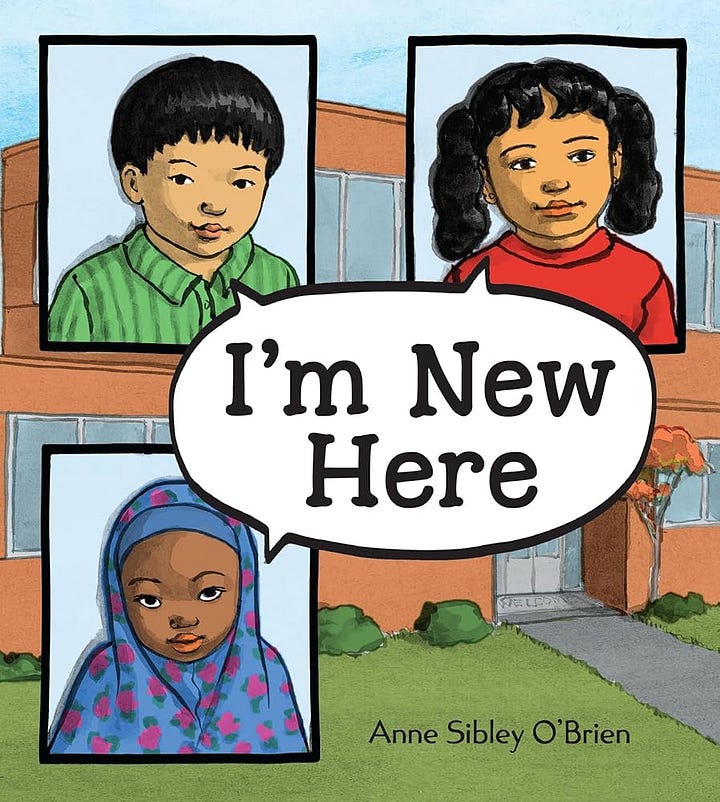
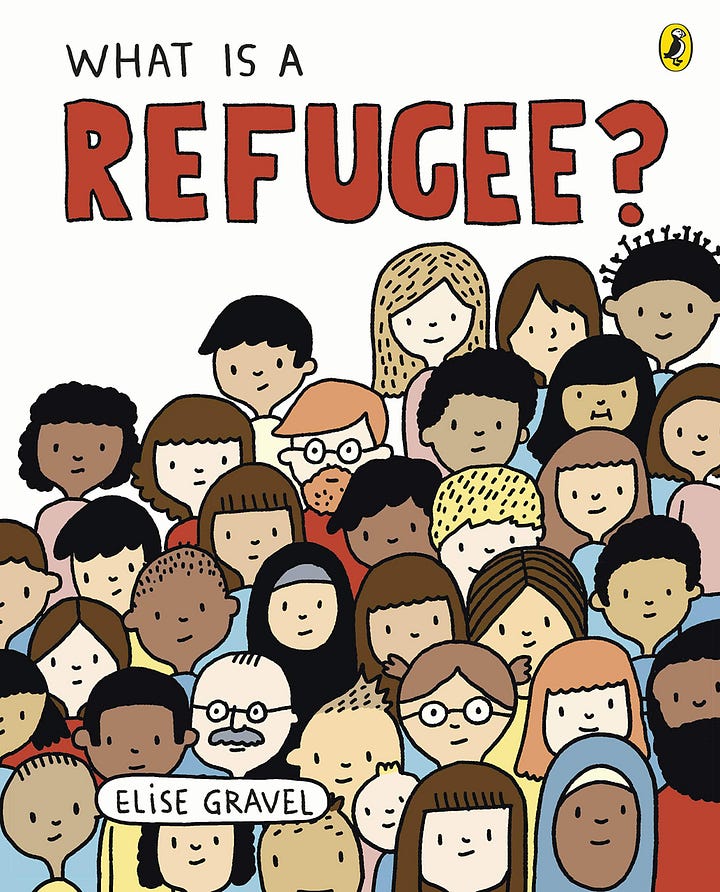
This particular storytime also just went on too long. I’d commend anyone who could keep a whole room of toddlers quiet for 40 minutes (an impossible task) but shushing them the whole time is just going to make everyone antsy, including the parents and carers.
Look, one of the other mum’s also spilled her entire coffee down my jacket, so that didn’t help my overall disgruntlement.
So yes, I have become quite fussy when it comes to storytime. Maybe it’s because we go to so many, and I’ve really started to notice what works and what doesn’t. I know it’s not an easy job, and I salute the librarians on the frontlines who do the absolute best they can with a chaotic crowd. I wonder how I would go if I was put in the hot seat? I genuinely think I would bomb. And honestly, for all my complaining, storytime has kind of saved me as a parent. I made one of my best mum friends at a library rhyme time when my daughter was only 4 months old. I have felt so much less alone sitting in a circle singing the hokey pokey with strangers and their babies. Storytime has helped my daughter fall in love with stories and storytelling. And it has also, most importantly, occupied our time when the days have felt endless.
Thank goodness for storytime. It’s only that I’m looking for one that is juuuuuust right! Solid book choice (and a hot drink-free zone) is key.
What makes a good storytime picture book? Please share your thoughts below.
This week I’ve also been on the hunt for books to occupy my two-year-old on an upcoming four-hour flight to Perth. We are not averse to letting her watch a bit of Peppa Pig, but are keen to have some fun screen-free activities ready to go. I’ve found a few of these Search and Find books that look like they might be useful, including a Claris one that I picked up at The Kids’ Bookshop recently.
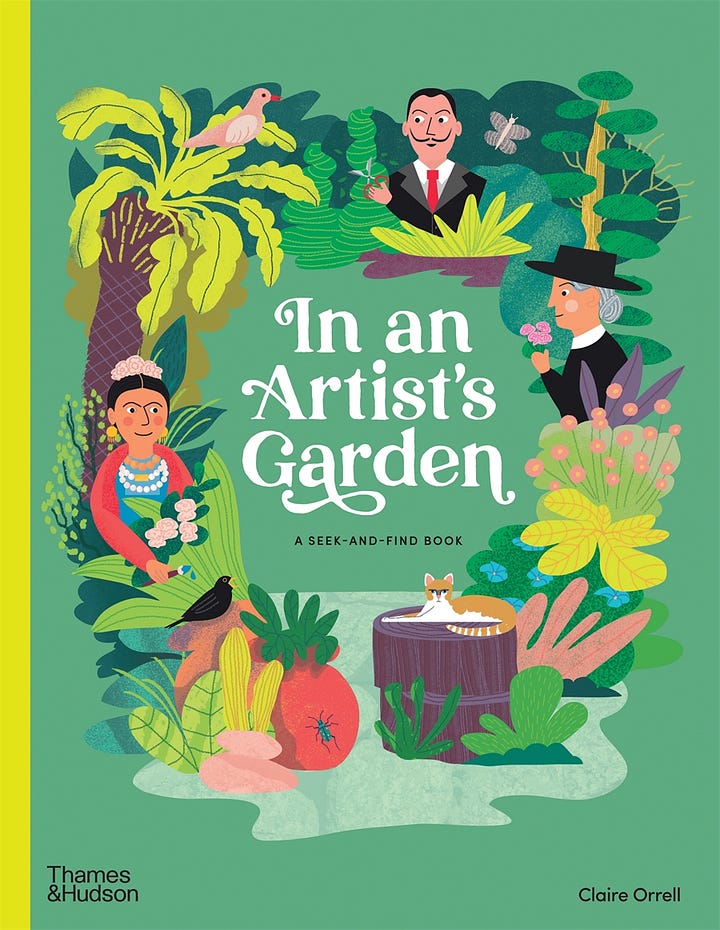
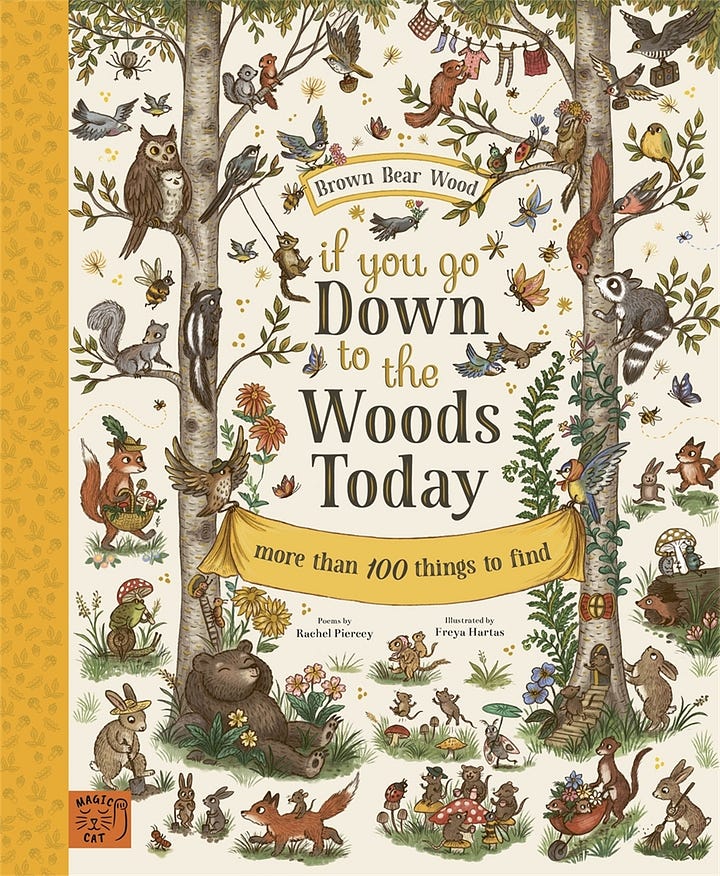
I also found a really good plane-themed activity book in the Dymocks Melbourne bargain mezzanine yesterday. (My god I love that mezzanine.)
Any other tips appreciated.
Bookish listening-wise, I’ve been doing some uncharacteristic looking backwards. Firstly, to The Hunger Games. One of my favourite podcasts, Sentimental Garbage, has released a mini-series called Magical Garbage, focusing on the world of fantasy and magical storytelling, to celebrate host Caroline O’Donoghue’s upcoming sci-fi romance, Skipshock. The second episode in the series takes a look into the world of The Hunger Games. I loved the books when they first came out, but have never really revisited them or kept up that initial fandom, and haven’t read the two prequels that were released more recently. (Although I’ve seen enough good reviews to tempt me.)
This podcast episode made me revisit the appeal of the world Suzanne Collins created, and also contextualises it for a more contemporary audience. I enjoyed the deep dive! There are other episodes on Dragonheart, His Dark Materials, Lord of the Rings, and more.
And then looking even further back, to the time of Jane Austen. I understand that this is blasphemous for a bookish millennial woman to admit, but I have never loved Jane Austen novels. Not even Pride and Prejudice! Not even the screen adaptations! (I did actually like the most recent Emma film but I think that’s the only one.)
Regardless, I really enjoyed stepping into this world via the Critics at Large podcast episode, Our Romance with Jane Austen.
When you think of a certain kind of period romance, you know what I’m talking about. Hands brushing, repressed feelings. a prolonged marriage plot, an empire waist. The name that comes to mind is Jane Austen.
If you’re an Austen fan (like everyone else other than me) I recommend the conversation about the ways in which her books are endlessly alluring (or so they say).
And, I want to share an upcoming event! That I am so excited about! Teacher-librarian extraordinaire Lauren Kyte and I are presenting an online Middle Years Book Swap for VATE. It’s totally free and you can join from the comfort of your own home.
Join Karys McEwen (author and host of VATE's podcast YA Book Stack) and Lauren Kyte (Salesian College Sunbury) for a dynamic session where these two experienced librarians share and compare their top text recommendations for Years 7–10. They’ll explore how to choose stories that engage, challenge, and connect with students and will offer fresh alternatives to tired classroom staples. Expect practical recommendations, rich discussion, and plenty of inspiration to diversify your text list. Come along and join the conversation!
This is especially relevant because I’ve been having a conversation with a colleague this week about the politics of text selection, and how fraught it can be for librarians that are dealing with community pushback or outrage over the books taught in schools. This is something I’ve been doing so much thinking on, and will hopefully publish an essay on in coming weeks. In the meantime, if you have any thoughts, specifically about “text selection in the current political climate” (whatever that means to you), please get in touch.
What I’m currently reading
Just this morning I have picked up my advance copy of Sonny & Tess by Nova Weetman. (Thank you to UQP for sending it to me!) I’m hooked already, as I had a good feeling I would be. Apparently the seed for the novel came from a student at a school visit who asked Nova why she only writes sad stories. I guess she thought she’d prove them wrong! Sonny & Tess is brimming with humour and heart. And I’m only a few pages in.
I am planning to be at Nova’s shared book launch with Amy Doak at Readings Kids next weekend. Full book review and launch report to come!
I finished reading The Only Branch on the Family Tree by Sherryl Clark yesterday. I loved her previous one for a slightly younger audience, Mina and the Whole Wide World, and am glad to see another slender verse novel from this author who can say so much in so few words. Exploring family estrangement in such a direct way is a risk, but one that has paid off in this story. I read recently that 29% of American adults are estranged from an immediate family member. That’s a very high number! If the stats are similar in Australia, this is clearly a topic worth exploring in children’s literature. In The Only Branch on the Family Tree it is done so sensitively, and in a very accessible format.
This is also just a great story to encourage discussions about secrets and forgiveness, two themes that become more thorny in the middle years, as young people start to gain more independence from the adults in their families, and perhaps also begin to understand that their parents are ‘people’, too. The book is completely told from the child’s perspective, which leaves a lot of room for thoughts about how the mother and grandmother characters really feel, and what happened behind closed doors to break their relationship in such a devastating way.
Speaking of complicated families, the other book I’ve read this week is a parenting memoir, Second Life: Having a Child in the Digital Age by Amanda Hess. I think the title is deceiving. It isn’t about children and screens, but parents and the internet. Specifically, how our unfiltered access to information has impacted our wellbeing and mental health when it comes to pregnancy, childbirth and parenting. I found it to be incredibly insightful, scary, and relatable. I wish I’d had it long before I became a mum!
At once funny, heartbreaking, and surreal, Second Life is a journey that spans a network of fertility apps, prenatal genetic tests, gender reveal videos, rare disease Facebook groups, “freebirth” influencers, and hospital reality shows. Hess confronts technology’s distortions as they follow her through pregnancy and into her son’s early life. The result is a critical record of our digital age that reveals the unspoken ways our lives are being fractured and reconstituted by technology.
I highly recommend this one, especially for those grappling with a digital identity crisis. (This is me right now.) For a fairly dense work of non-fiction, it is also highly personal and a surprising page-turner.

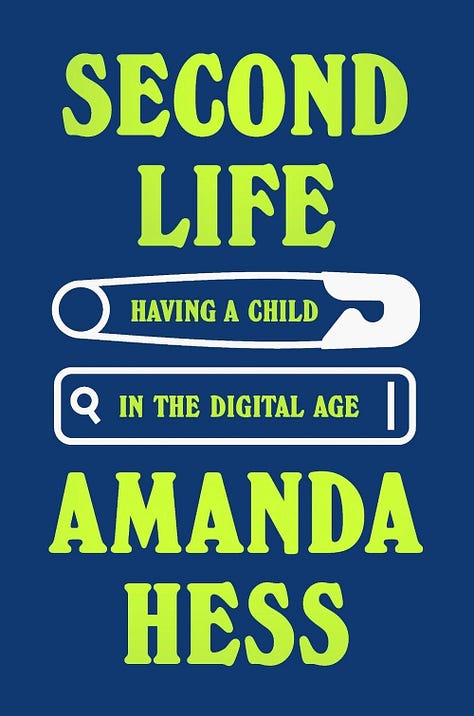
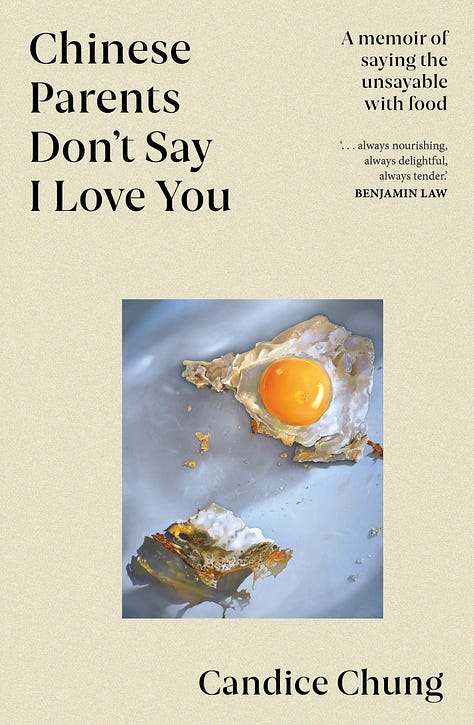
In the last week or two I’ve also read some other great adult non-fiction! This is unusual for me. Firstly, Chinese Parents Don’t Say I Love You by food journalist Candice Chung, which was a complete 10 out of 10. I only added it to my shopping basket at Big W because it was cheap and I liked the cover. I’m so glad I did! On the surface it seems like a straightforward food memoir, but in reality it is so much more. In a way that’s hard to describe. Chinese Parents Don’t Say I Love You is about culture, creativity, heartbreak, travel, connection, longing and choice. Which sounds quite lofty, but it’s also just a very quiet and deeply intimate story. I loved the writing style (Nora Ephron-esque), and yes, the descriptions of food, too.
A meal is a shape. It is a container into which we pour our cravings.
I also read When the Going Was Good: An Editor's Adventures During the Last Golden Age of Magazines by Graydon Carter. My partner worked in the magazine industry (in Melbourne and London) right before it all came crashing down, and so I had a very small taste of this world “when the going was good”, or towards the end of the “good”, anyway. As a bystander (who didn’t have to crunch numbers or deal with deadlines), I loved magazines. I remember browsing for hours in Mag Nation back in the day! And spending way too much of my meager income on some of the most niche titles.
You never know when you’re in a golden age. You only realise it was a golden age when it’s gone. And the magazine business, brutalised not just by the great recession of 2008 but also by the relentless appetite of the internet, was in the beginning of a rapid period of decline.
This memoir from the former Vanity Fair editor is a bittersweet reminder of what was. For all its lamenting and nostalgia for an industry that pretty much no longer exists, Graydon Carter’s story is deliciously luxurious (those expense accounts!) and I enjoyed every blatant name drop and scandalous confession, including his awkward run-ins with Trump. My favourite bits were the sections about the Vanity Fair Oscars parties and all the mind-boggling interactions with Anna Wintour, as well as the chapter “A Monthly Magazine in a Daily World”. The whole thing is a real treat. (And yes, I know it was ghostwritten but no, I don’t mind at all.)
As for picture books, we’ve managed three (!) library visits this week, which is pretty funny given I only look after my daughter two days a week at the moment. Hence, our borrowed book stacks have been teetering.
Exhibit One:
And Exhibit Two:
I couldn’t possibly write about them all but here are some highlights: reading the beautiful Extra Yarn a million times until I can remember it word for word, the darkly funny cheekiness of The Cat Thief, finding another Jane Godwin and Jane Reiseger collab that we didn’t know about and ended up loving as much as their other ones, re-borrowing If I Was A Horse because one time wasn’t enough, feeling summery and warm thanks to Our Pool, screaming HORRIBLE BEAR! at random intervals throughout the day, learning about rot, the social model of disability, why adults should always listen to children, and why we most definitely can’t trust fish. (I don’t think I’ve ever laughed that much while reading a picture book?)
And here is the full list:
And just a shout out for this incredible cover illustration:
I was also thrilled to see Paperbark on display at one library this week, and this time, it wasn’t even me who snuck it there!!!!
In professional reading, I’ve been churning through the latest edition of Idiom, a journal by VATE and especially enjoyed the article Balancing the collection by Prue Bon. I have some upcoming work with Prue (in relation to text selection), and her school is only just up the road from me in Emerald, so I was interested to read about her experiences getting her library up to scratch. So many people (including librarians themselves) underestimate the importance of weeding! Or freak out when you say you’re throwing books away. It is a vital task, and one that should be done with care by experts who know what they’re doing.
And lastly, in what is pretty much the opposite of weeding, I wanted to share a little op shop spread I recently got my paws on. One of our local op shops had a ‘basket sale’ last weekend (fill a basket for $10) and I found some really unusual and fun children’s titles. I could have gone harder but tried to be good.
Are any of these familiar to you readers? I just love the strange stuff at this particular op shop, which is independently run by a church. Between my partner and I, we have found some truly fantastic gems on the shelves. We live in a tiny house and can’t hoard, but it’s hard to go past a quirky little pile like this one. (And all this and more, including the below teddy that my daughter named Brian in memory of the late Beach Boys musician, for only $10!)
And finally, a mini Sydney book tour
I am heading up to NSW to defrost in September! Or, that’s part of the plan, anyway. I am lucky enough to be moderating an event with Australian Children’s Laureate Sally Rippin on the Central Coast, but also have a few days in Sydney that I’d love to fill with bookish things.
And so, please help me spread the word!
If you would like me to visit your school, bookshop, library, book club, or any other kind of book-related gathering, I’d love to talk about The Paperbark Tree Committee, my journey from librarian to author, my creative process, the children’s literature industry and my role in it, and great Australian books for young people! Or anything else!
These are the dates/times I currently have free:
Wednesday 17 September PM
Thursday 18 September AM
Friday 19 September PM
Saturday 20 September ALL DAY
Sunday 21 September AM
Get in touch by emailing karysmcewen@gmail.com or clicking below.
Introducing... the I Read A Lot Book Club!
My partner recently introduced me to this book club platform called Fable. It fosters a social environment for readers, enabling them to connect with others who share their interests, participate in book clubs, and engage in discussions about what they’re reading.
In case you missed it, this week I launched the I Read A Lot Book Club! Click here to read all about it and join in on the no-pressure fun of reading one great children’s book a month with us.
Do you like what you read today? Then please recommend I Read A Lot to your colleagues and friends by clicking below!

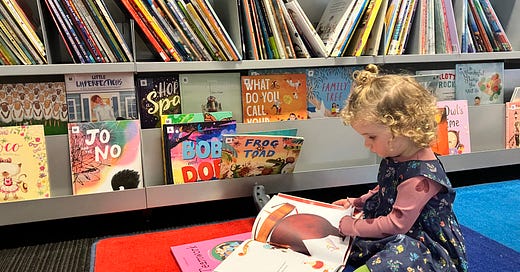



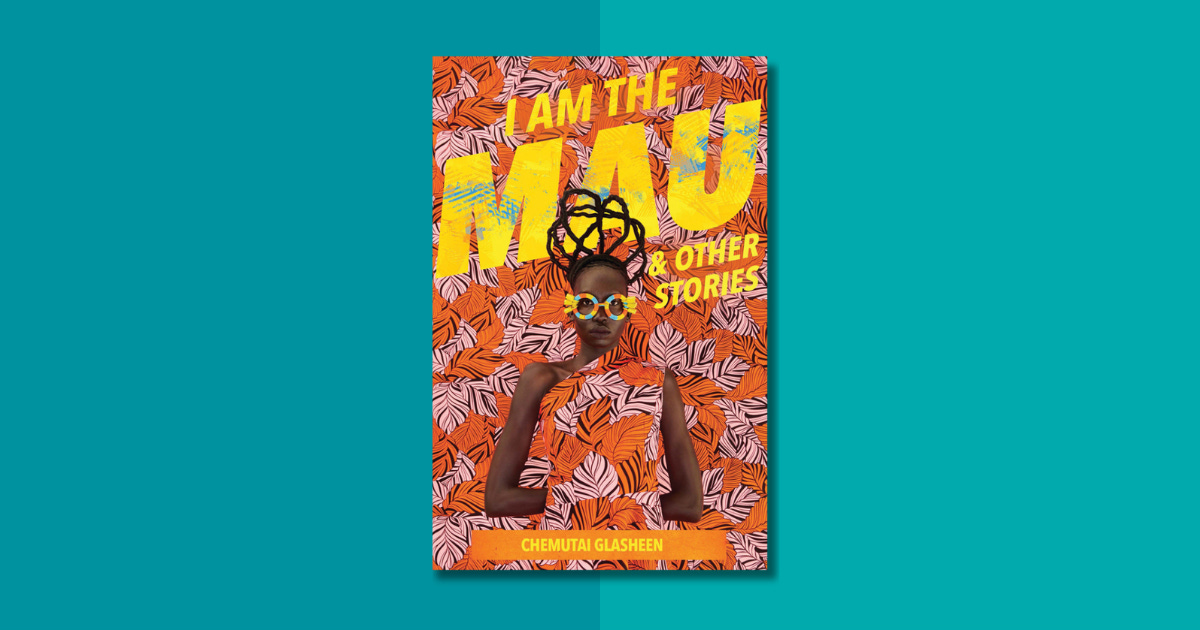
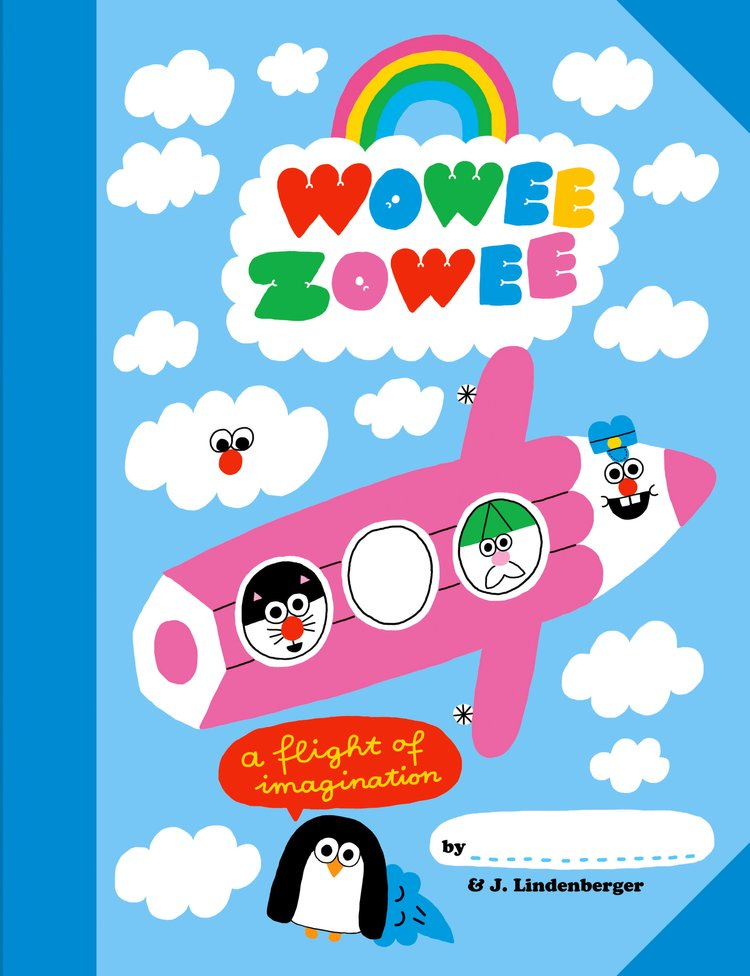
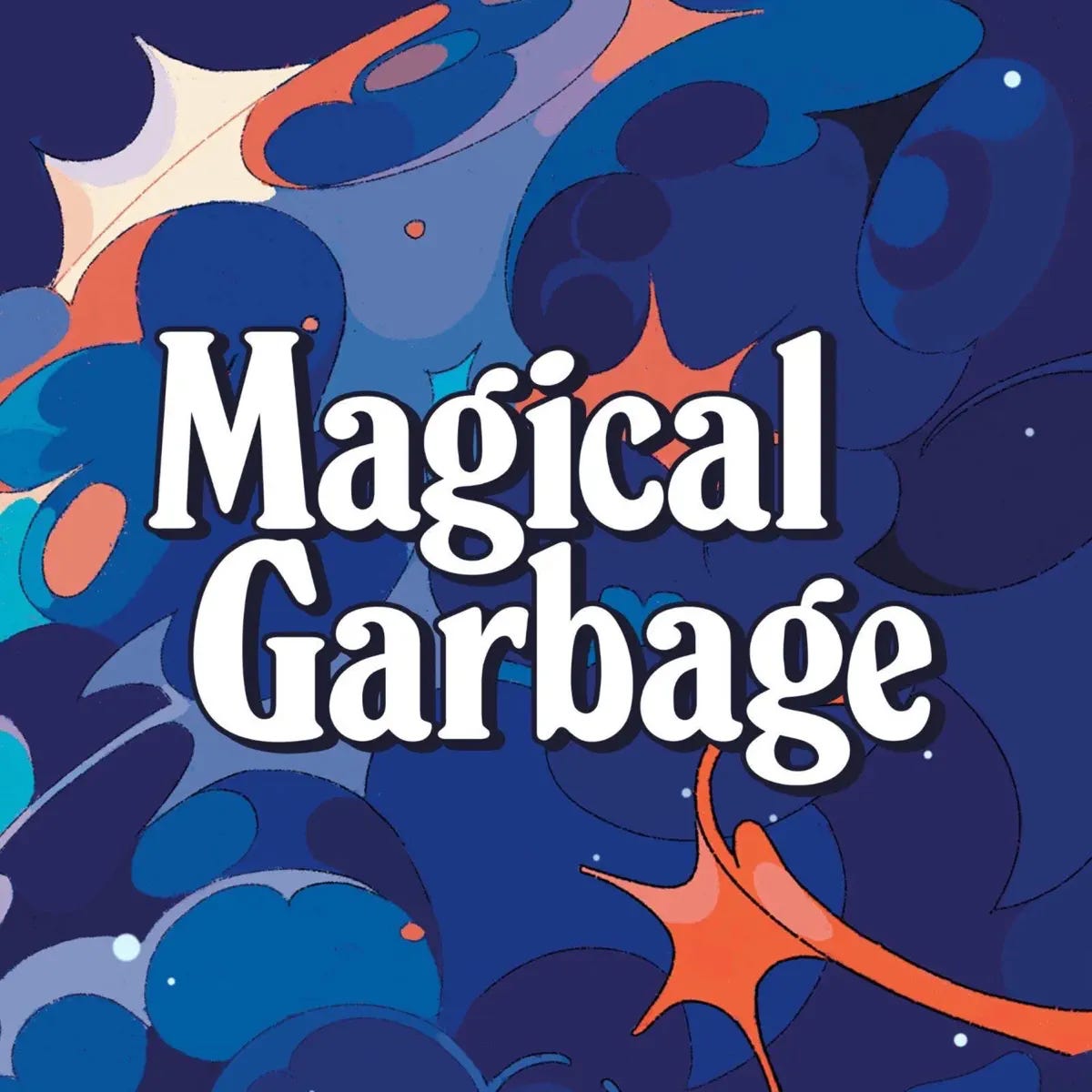
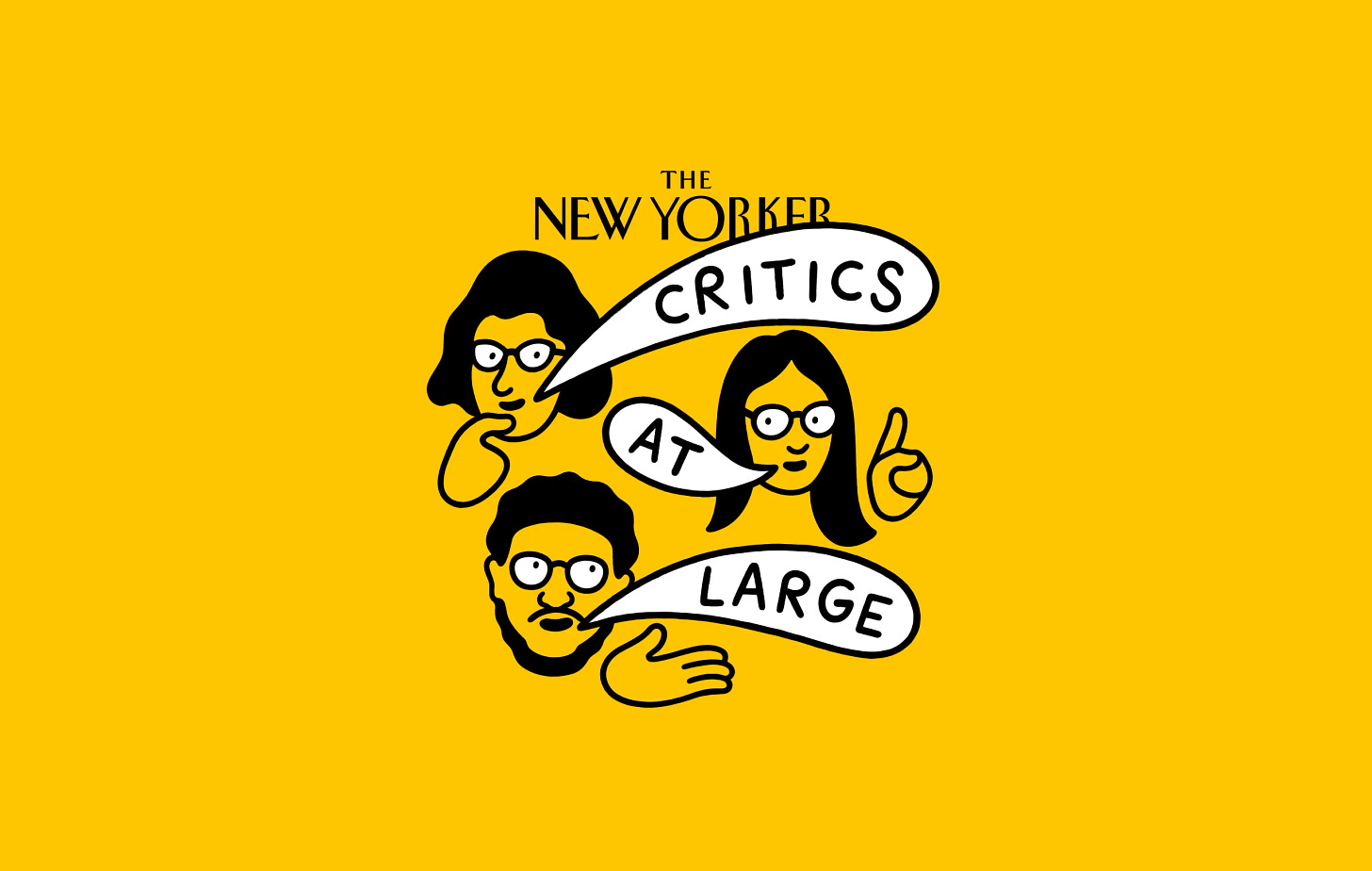

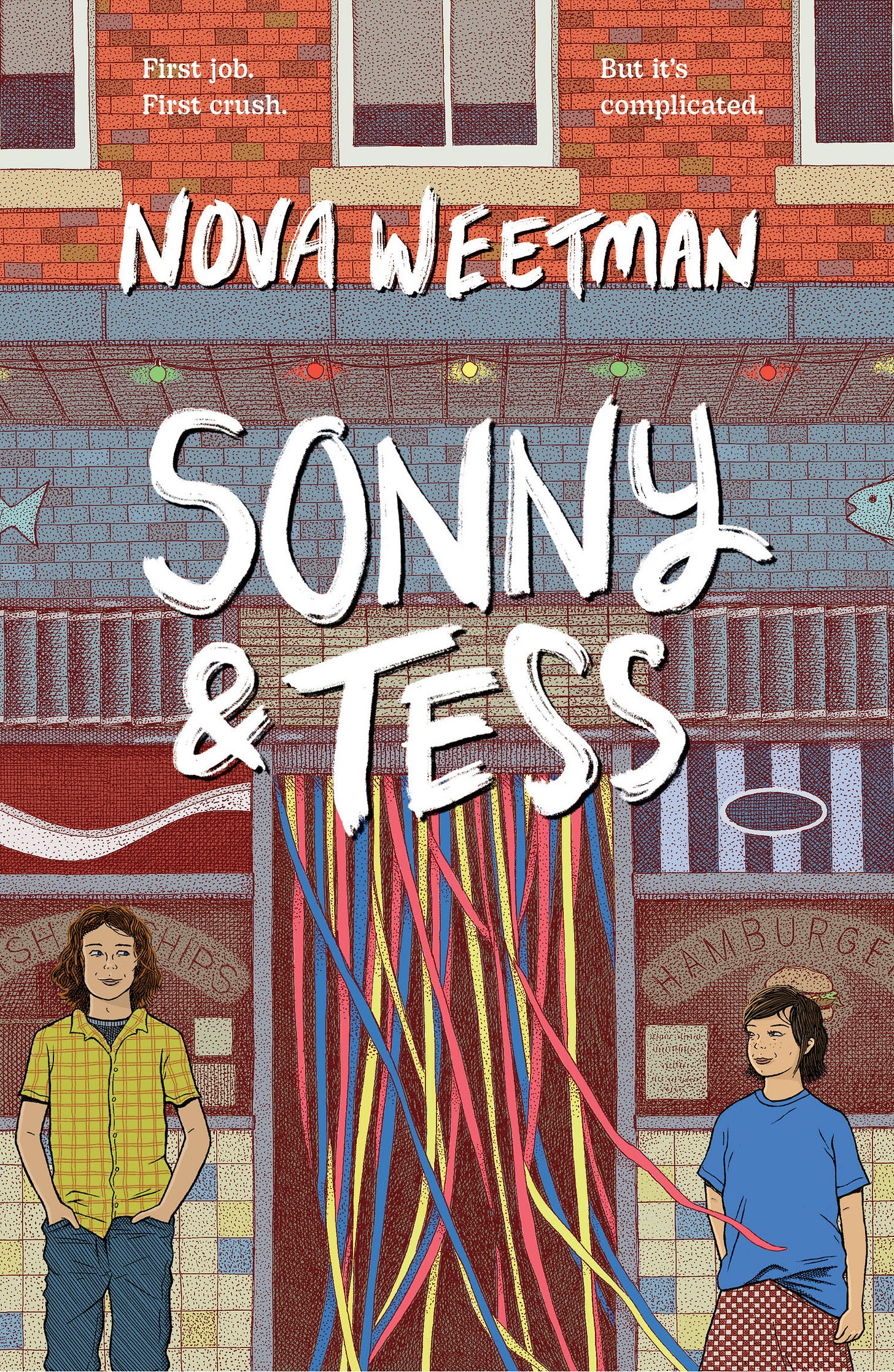
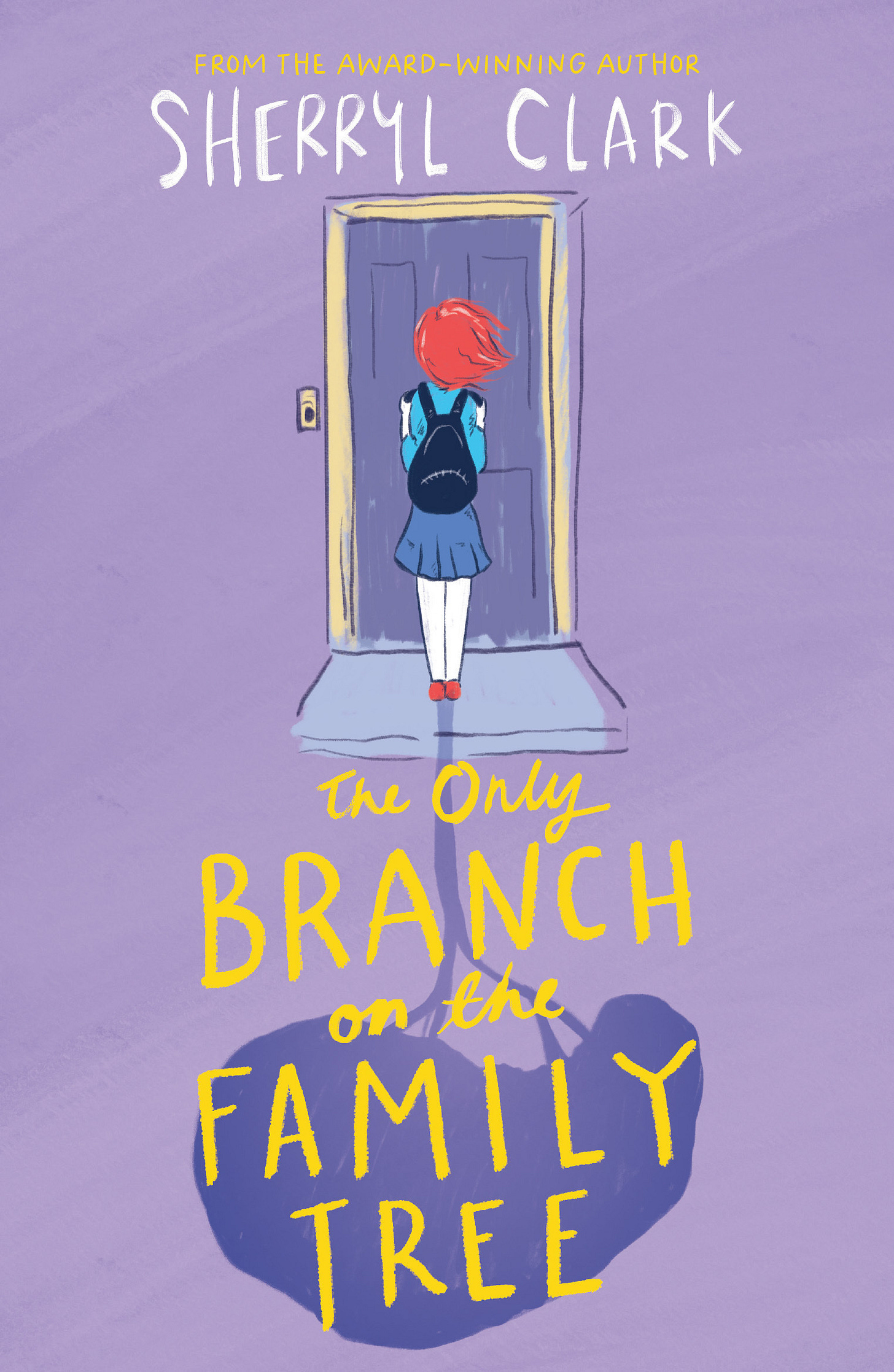
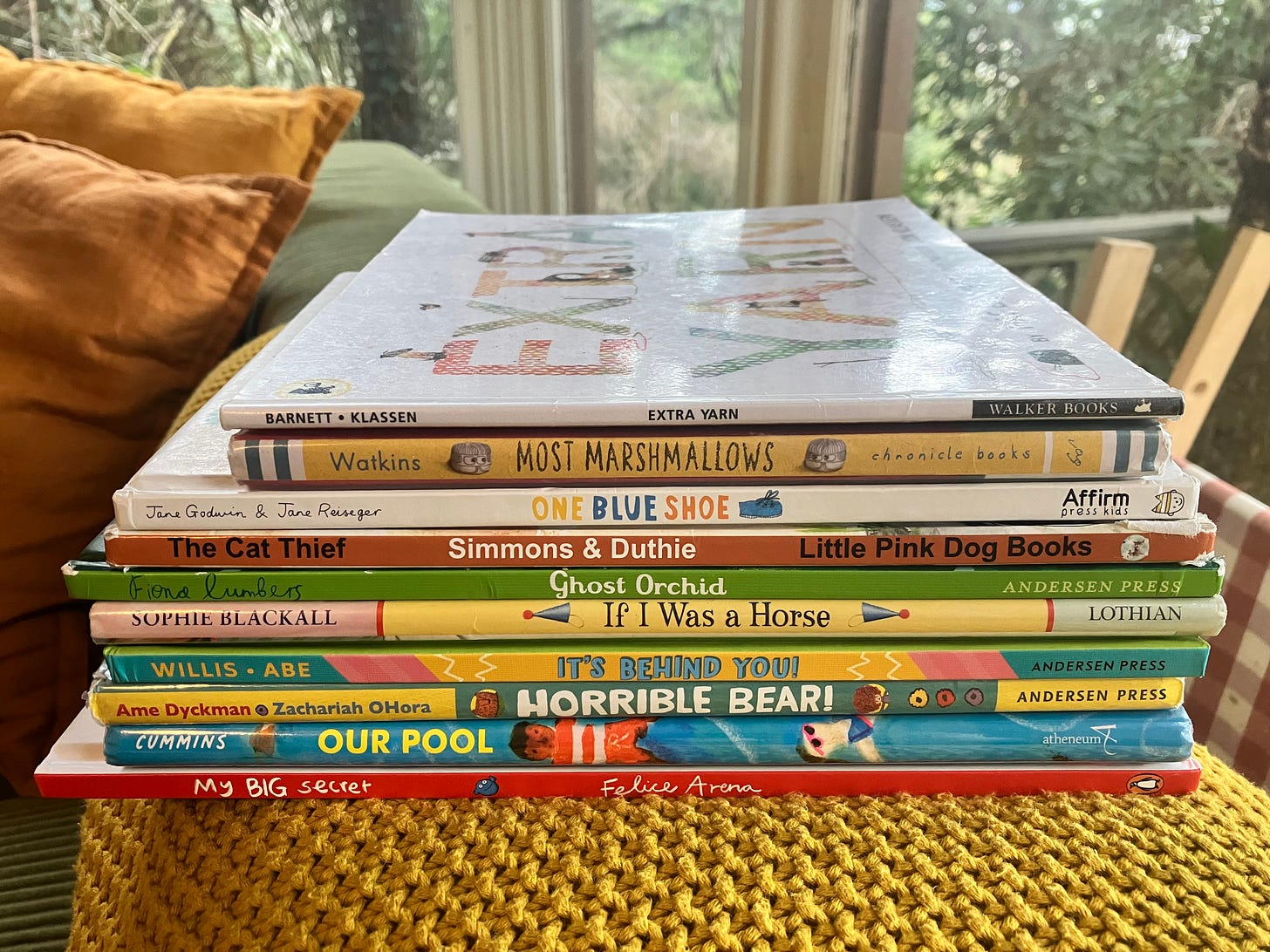
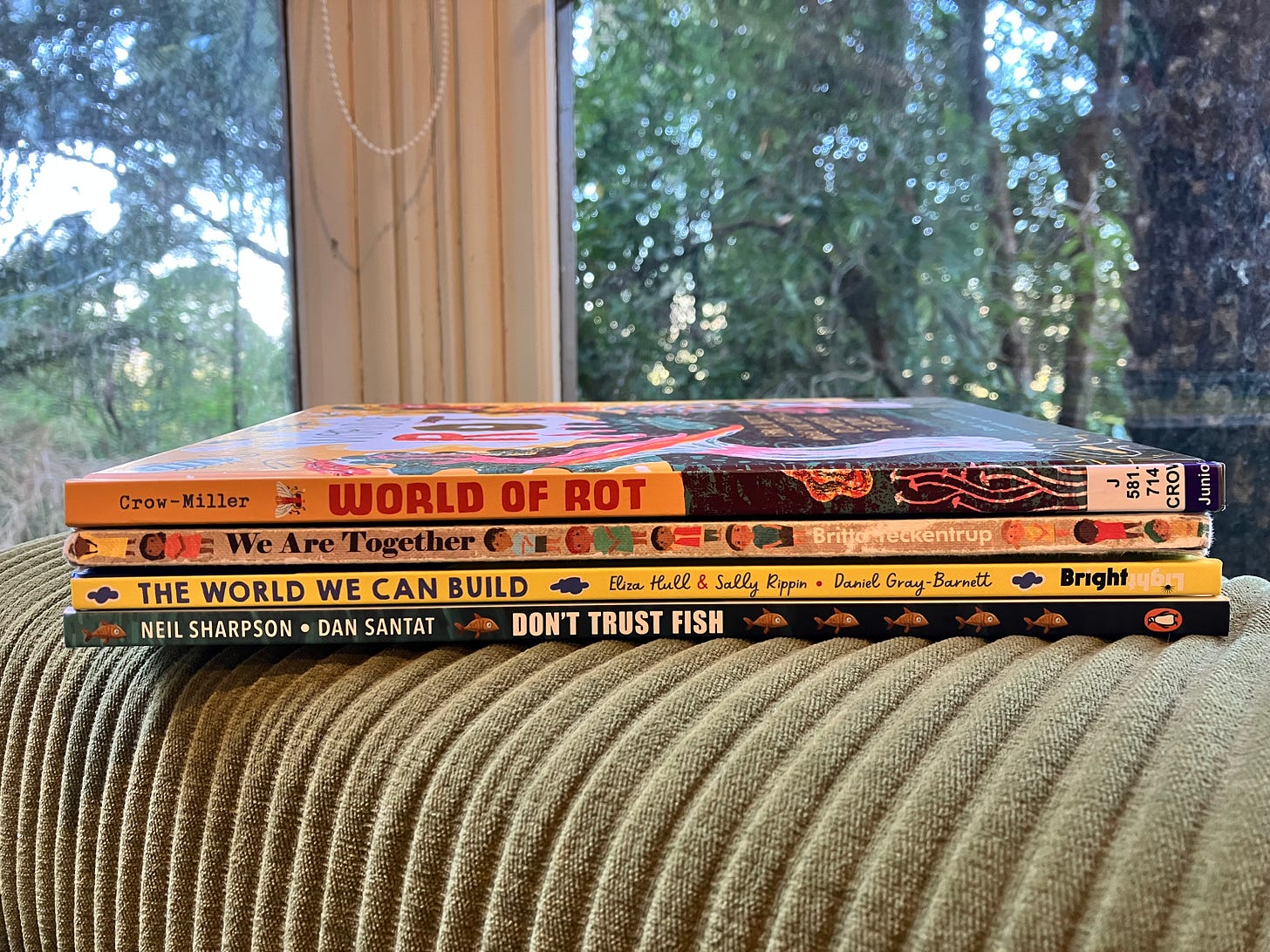
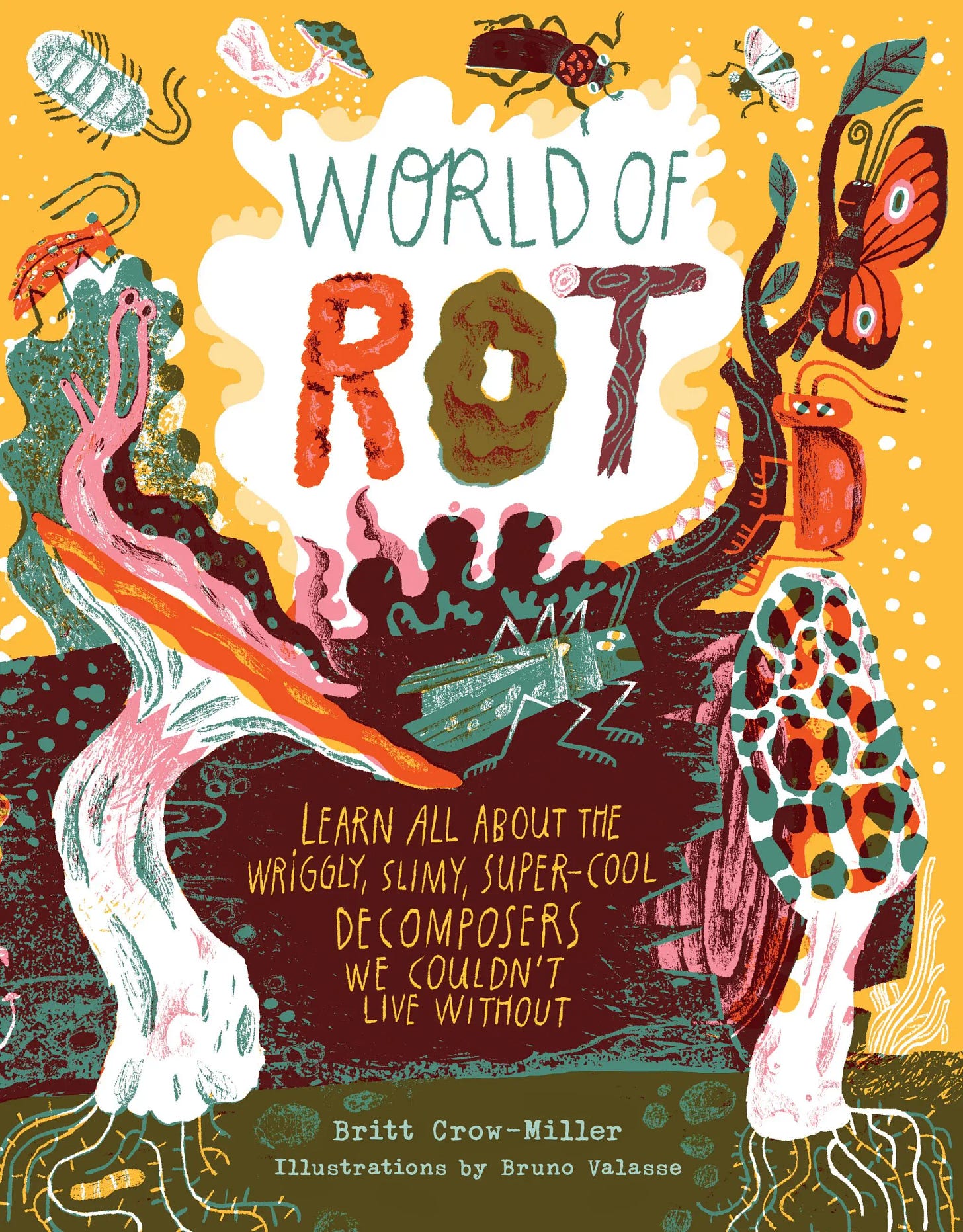
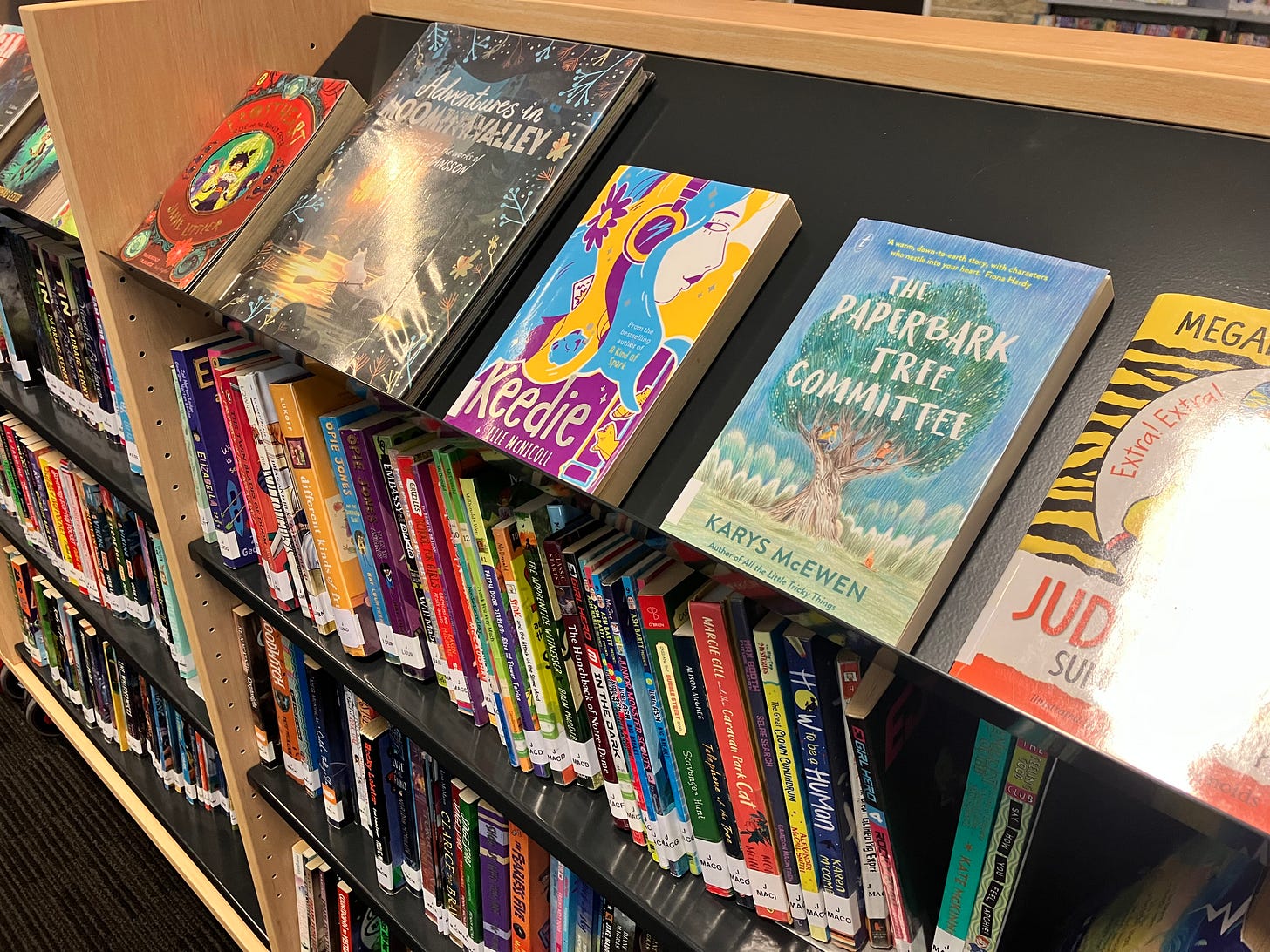
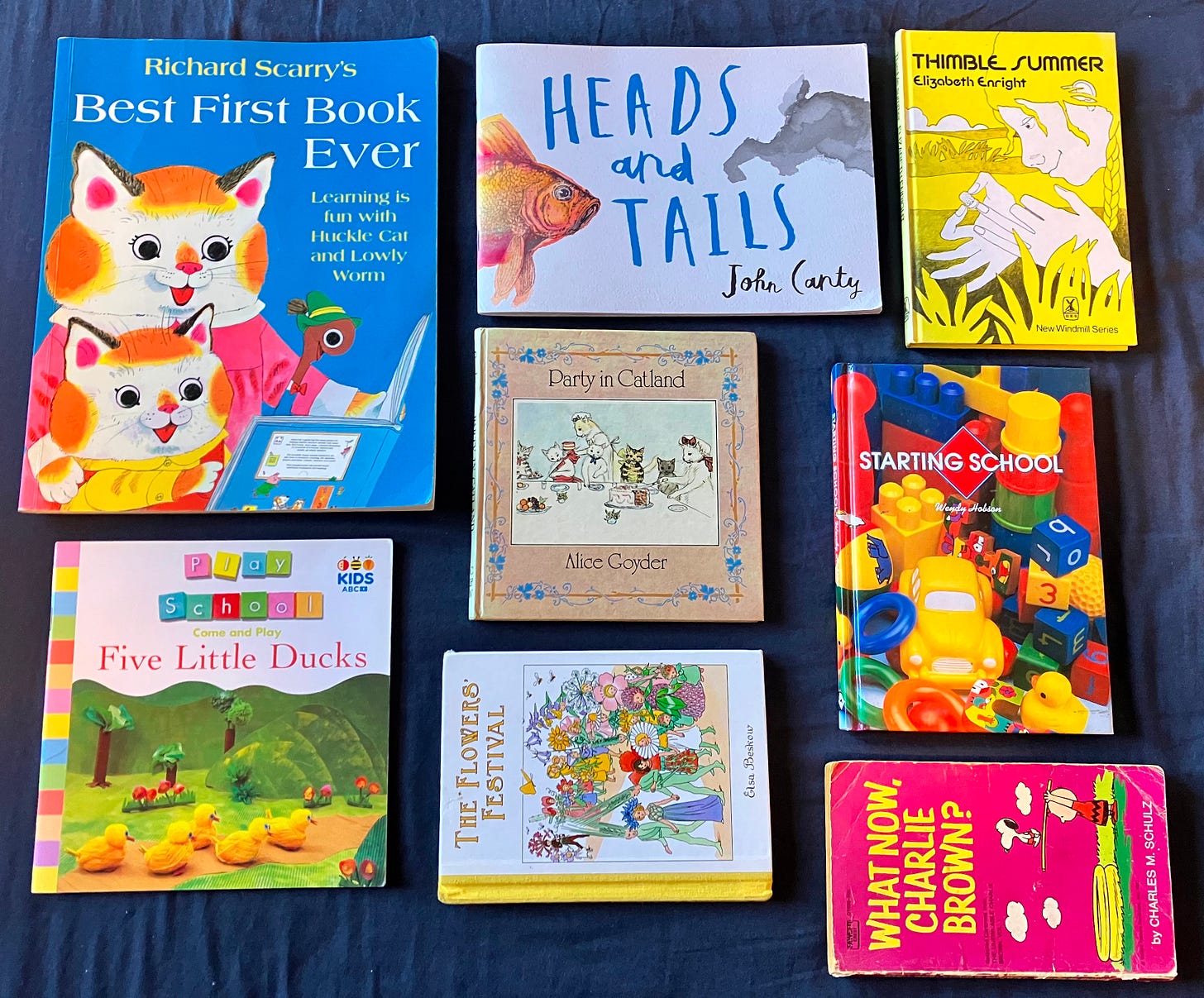
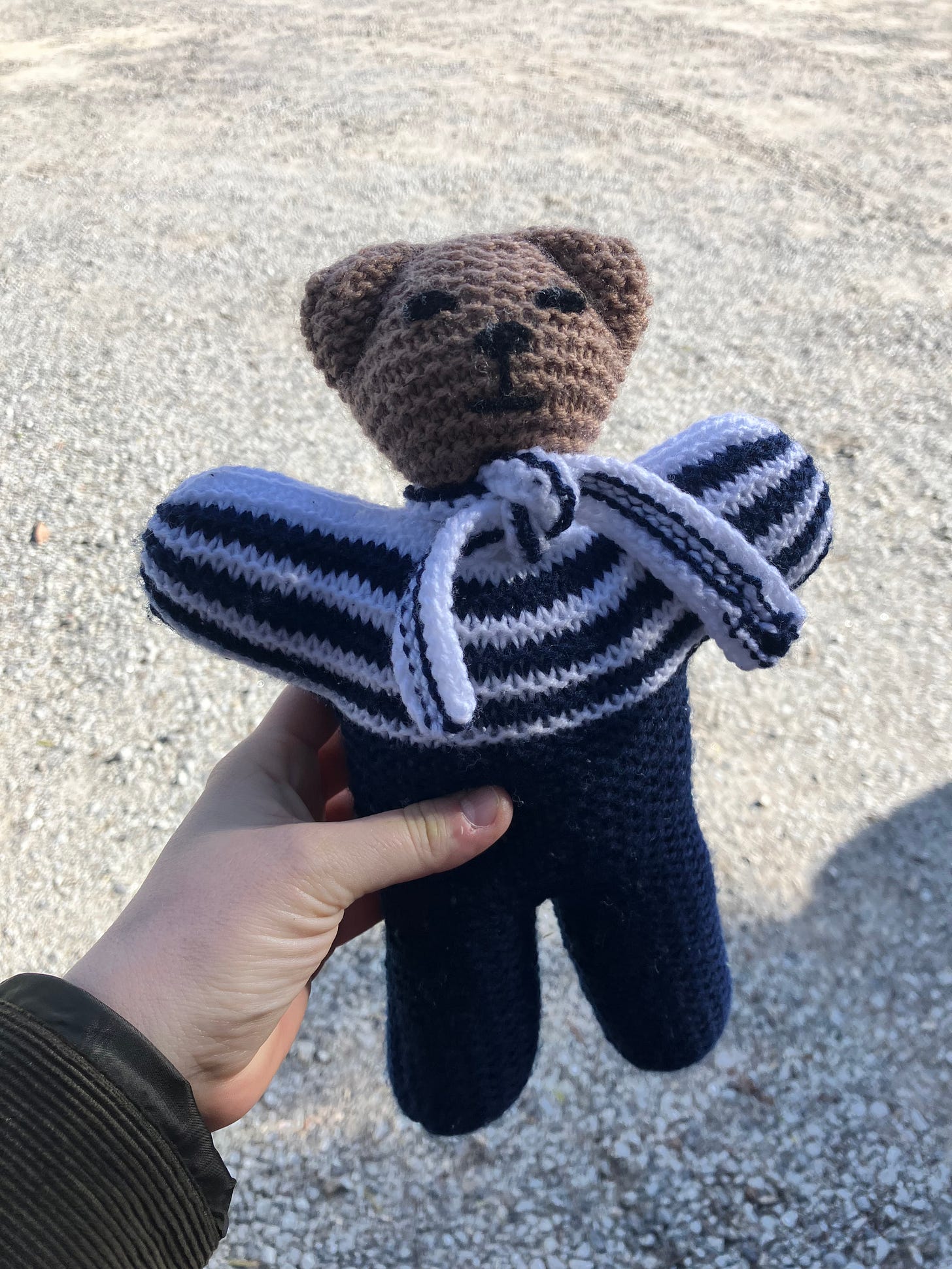


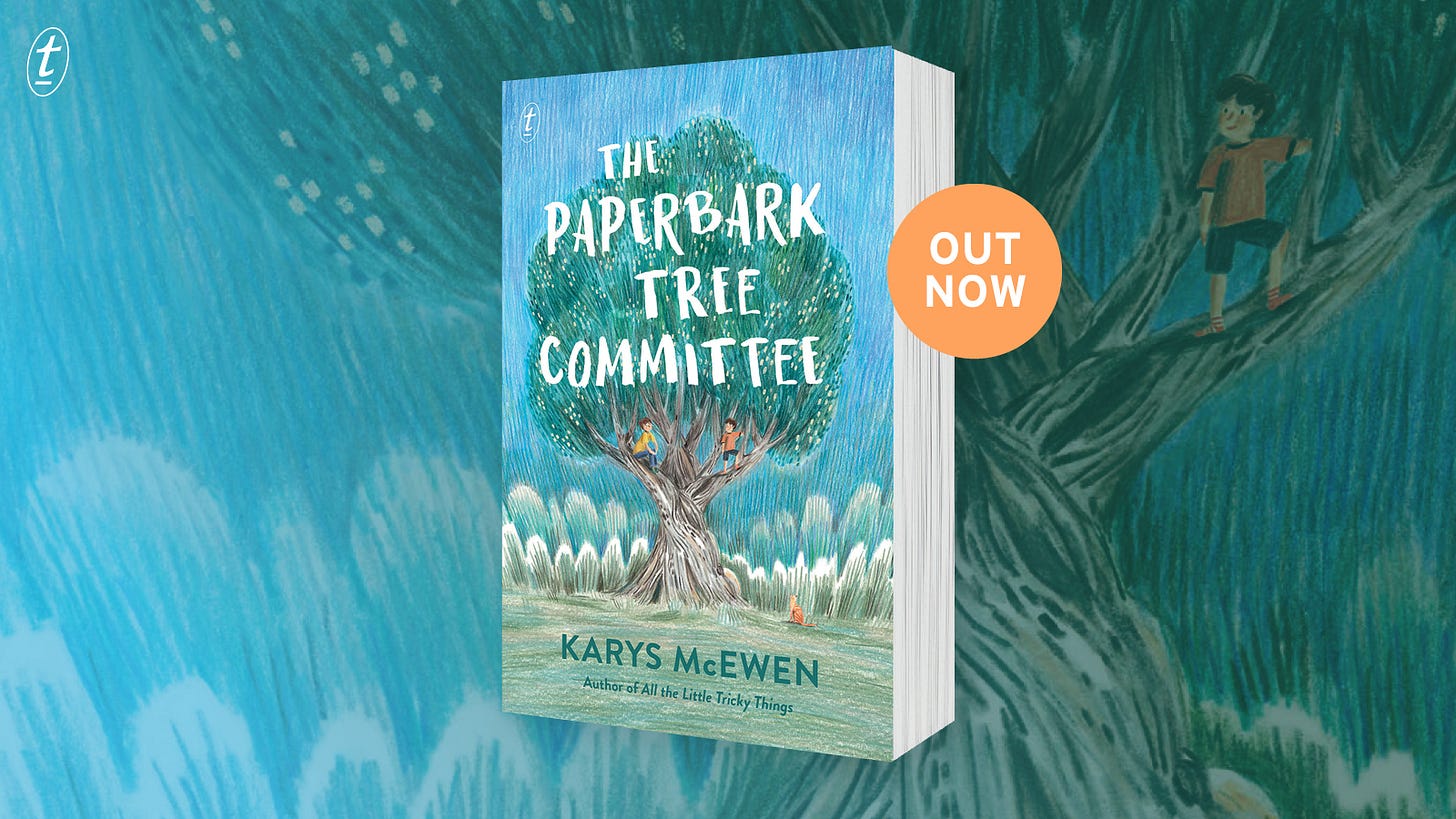
Story time (or rhyme time) for me so far has been all about volume... I’ve never felt so frustrated at how quiet the librarian can be at our local one 😅 we need more energy and encouragement to sing along!
As someone who has to run a Storytime and Rhymetime class every single week, I appreciated the shout out. It is such a challenging program to run! But five years of doing that made reading my own book at my launch much less daunting.